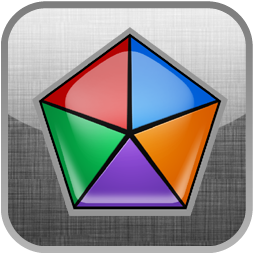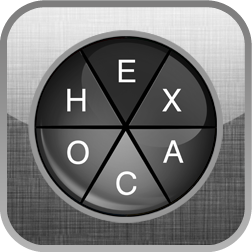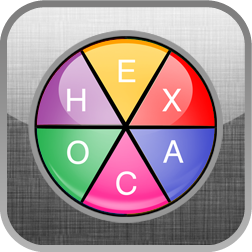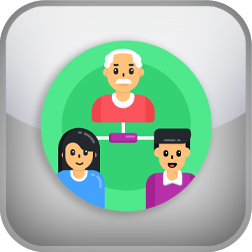Big Five Movie Star Test
You are here because one of your friends linked you to his or her Big Five Movie Star Test result.
Take the testYour friend is the most like:
Andrew Garfield

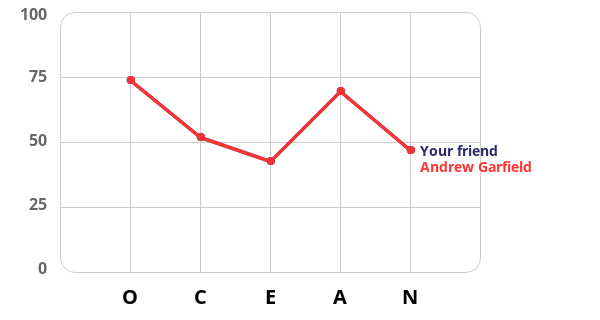
Compared to the general population, your friend is:
- High on Openness
- Average on Conscientiousness
- Below average on Extroversion
- Above average on Agreeableness
- Average on Neuroticism
According to scientific data compiled by the Ph.D.s Dana R. Carney, John T. Jost, Samuel D. Gosling, and Jeff Porter, your friend's scores indicate that he or she is:
- Eccentric, sensitive, and individualistic.
- Open, tolerant, and flexible.
- Creative, imaginative, and curious.
- Complex, nuanced, and open-minded.
- Someone with a strong desire for novelty and diversity.
- Likely to use fewer pauses in their speech than the average person.
- Trustworthy, faithful, and loyal.
- Appreciative, forgiving, and kind.
According to Geoffrey Miller, professor of psychology at the University of New Mexico, these slogans are likely to describe your friend's personality and outlook on life:
- "Talk nerdy to me."
- "A PBS mind in a Fox News world."
- "Don't say ironic when you mean coincidental."
- "If it fits on a bumper sticker, it's not philosophy."
- "Commit random acts of kindness."
- "Be tolerant and coexist."
- "Anger doesn't solve problems."
According to a study done by the Ph.D.s Dana R. Carney, John T. Jost, Samuel D. Gosling, and Jeff Potter, your friend's scores indicate that he or she is:
- Amazingly, their personality is simply too smooth and well-rounded for this study to be able to say anything about them.
According to peer-reviewed studies from Texas AM University (US), Pepperdine University (US), Cambridge University (UK), and Sejong University (Korea), your friend's scores indicate that he or she is:
- More likely than the average person to want their political representatives to negotiate with the representatives of other parties in order to arrive at a workable compromise.
- More likely than the average person to have a critical view of the 2003 American invasion of Iraq.
- Likely to be more knowledgeable than the average person about political issues.
- More likely than the average person to care about the ambience of a hotel where they are staying, and not just its quality and service.
- More likely than the average person to buy something unexpected and fun that they stumbled across while shopping.
- More likely than the average person to be perceived as likeable, warm, and trusting.
- More likely than the average person to benefit from talking their decisions through with others before committing.
- More likely than the average person to oppose the use of capital punishment.
- More likely than the average person to try and strike up a compromise when making a decision, tending to think of the wishes of others as important alongside their own.
- More likely than the average person to return to a chain of hotels or bed and breakfasts that they've used in the past and enjoyed.
According to a scientific study done by the Ph.D.s Gokul Chittaranjan, Jan Blom, and Daniel Gatica-Perez, your friend's scores indicate that if he or she own a smartphone he or she is:
- Likely to use longer words, and more long words, in their text messages than the average person.
- Likely to spend less time texting than the average person.
Take Next
GET THE FULL STORY
Become a lifetime member with a one-time payment
WHAT YOU GET
Access to members-only tests
Ability to track and save test results
Access to all of our eBooks (value $44.94)
Access to premium type assessments and infographics
Become a memberSave and monitor your results over time
Become a member today
Sign Up


